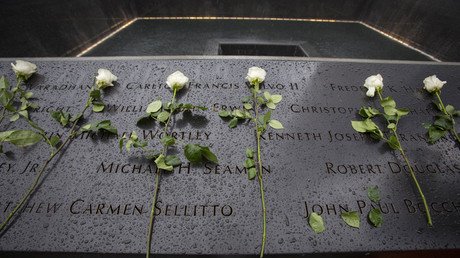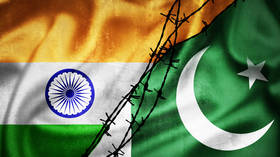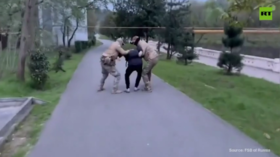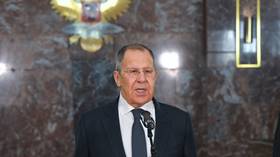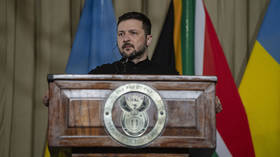US soldiers want fewer ‘nation building’ interventions, more attention at home - poll
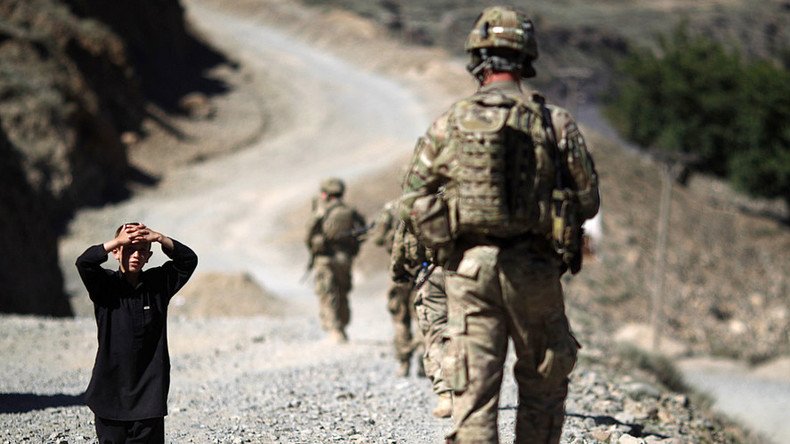
After 15 years of wars, a majority of US service members are deeply skeptical about America’s foreign interventions. The US should focus on homeland defense and jobs instead of invading and “stabilizing” countries like Afghanistan or Iraq, a new poll shows.
Most active-duty members of the US military would prefer the government to refrain from overseas missions involving so-called nation-building, a number of costly and ambiguous efforts to reconstruct post-war countries, according to a poll run by the Military Times and Syracuse University's Institute for Veterans and Military Families (IVMF).
The survey, described by the Military Times as a first-of-its-kind study, included a question: “How do you view the US government’s continued involvement in nation-building efforts, establishing democracies in the Middle East and North Africa using US military and financial support?”
About 55 percent of service members said they “strongly oppose” or “somewhat oppose” those efforts, while 23 percent responded positively to an idea of carrying out such missions. The remaining 22 percent were either unsure or of no opinion on the issue.
Troops in our survey with .@IVMFSyracuseU said national security should focus on counter-terrorism over foreign aid https://t.co/XtKqTXYCfSpic.twitter.com/lzAmq54fwh
— Military Times (@MilitaryTimes) September 23, 2016
The majority of US servicemen surveyed by the Military Times and IVMF believe that the government should be more involved in combatting terrorism (62 percent), homeland defense (68 percent), cyber security (81 percent) and nuclear deterrence (51 percent).
Notably, the troops expressed the most negative response on delivering foreign military aid to the US allies. About 62 percent said they believe Washington should be less involved with the foreign aid, and just 10 percent said the US must proceed with it.
Those who were against the foreign aid said they believe the US-run post-war reconstruction efforts comes at the expense of solving American’s most pressing problems.
“We need to get out of foreign affairs and focus on our own country,” Duane Hulbert, a 26-year-old Air Force staff sergeant who responded to the survey, told the newspaper. “We need to build jobs around clean, renewable energy sources … It’s time to focus on how to protect this one world we live on. If we destroy it there is no going back.”
Other respondents seemed disillusioned with those nation-building efforts because they feel that the US non-military support for such goals has been used improperly.
The poll, conducted between September 8 and 15, surveyed 2,207 active-duty troops through a voluntary and confidential online vote. Responses came from each of the 50 states, the District of Columbia and undisclosed overseas locations, the Military Times wrote.
Nearly 15 years of post-9/11 wars, namely Afghanistan and Iraq, have not only cost thousands of American soldiers’ lives and trillions of dollars spent on military expenditures, but those countries landed in disarray shortly after the US interventions.
Cost of US post-9/11 wars approaching $5trn – report
Afghanistan, a country where never-ending war goes on for decades, is still struggling with Taliban, economic hardships and a sinister threat of emerging Islamic State’s (IS, formerly ISIS/ISIL) affiliates keen to seize the country.
In Iraq, IS has seized considerable part of the country despite the ongoing US-led coalition aerial campaign against the terrorists. Most analysts believe the terror group’s top military brass comprises former Iraqi officers who radicalized and turned violent after suffering defeat in 2003 war.
